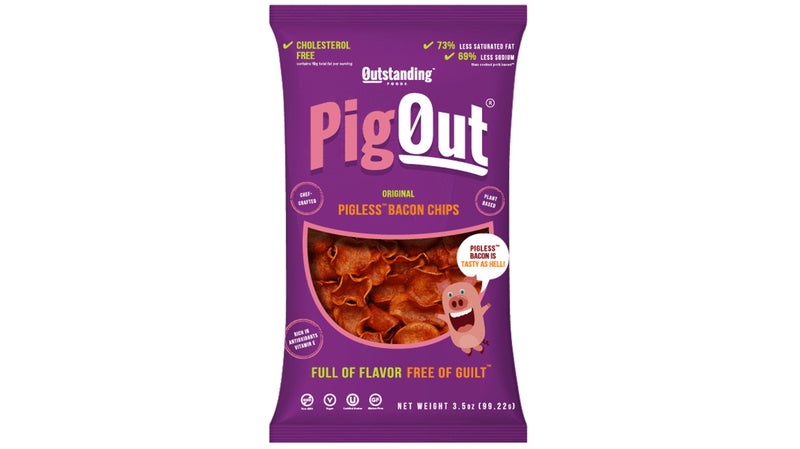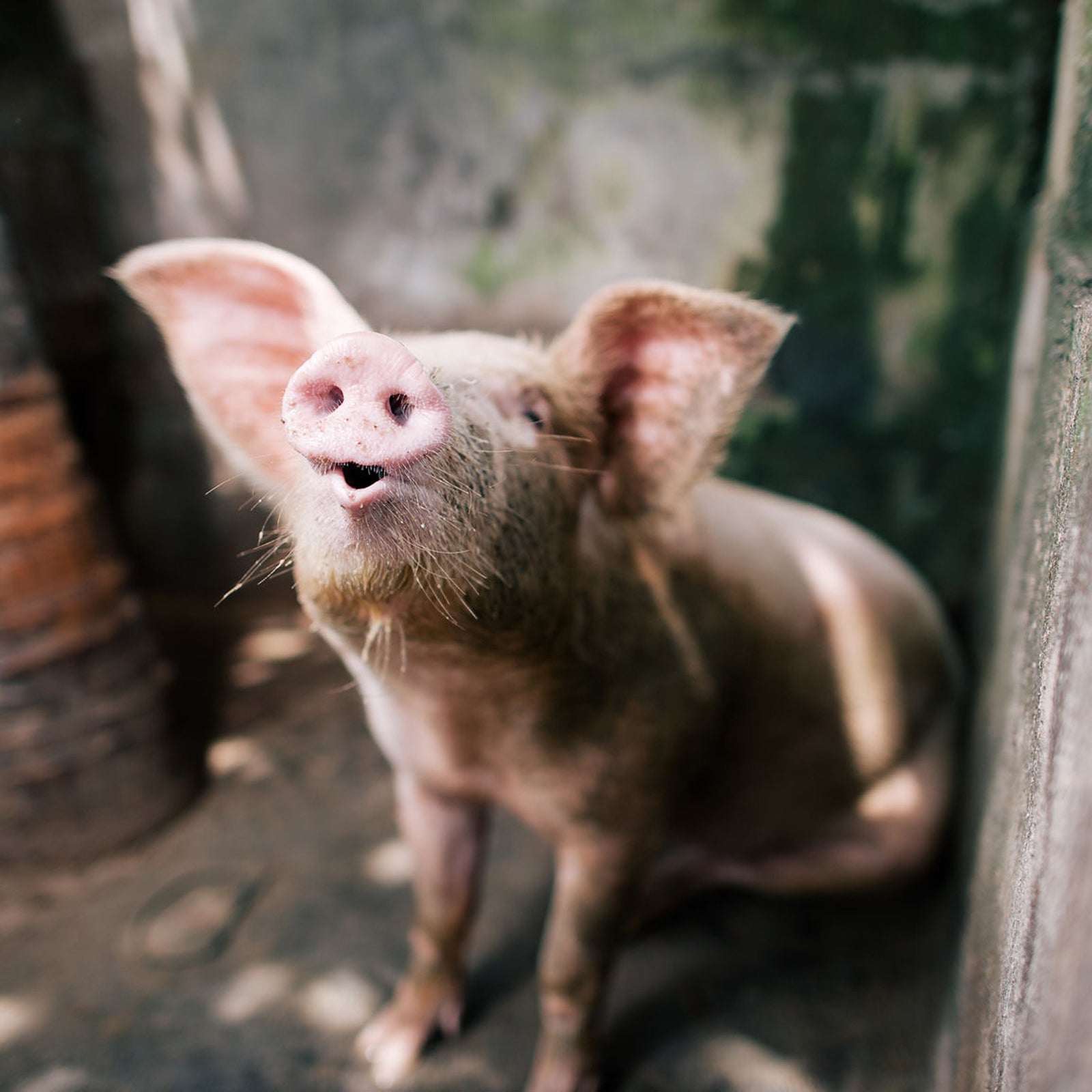DonÔÇÖt get us wrongÔÇöwe love bacon. But contrary to popular belief, it may not actually make everything better. ╠ř
More and more research shows that bacon and other cured meats have serious health downsides. The World Health Organization recently went so far as to ╠řlike bacon and hot dogs in its Group 1 list of carcinogensÔÇöwhich also contains asbestos and tobacco.
Then there are the that overflowed in North Carolina after Hurricane Florence, causing environmental damage. But you donÔÇÖt need a hurricane to have waste issues. Citizens in Iowa are╠ř because of runoff from pig farms╠řin local waterways. ╠ř
ItÔÇÖs time to make bacon better. Luckily, thereÔÇÖs a solution, courtesy of the humble mushroom.
Meet Outstanding FoodsÔÇÖ , a salty-smoky-crunchy marvel of plant-based╠řculinary craftiness. The architect behind these chips is , who helped ╠řlaunch its meat-free burger patty.╠řNow Anderson had partnered with╠řserial entrepreneur Bill Glaser to╠řbring╠řhome the fake bacon with their own line of meat-free products.
As I munched my way through the bag, the thing I kept coming back to is how perfect these chipsÔÇöwhich are the size and shape of a potato chipÔÇöwould be in the backcountry.
Anderson loved working on Beyond Meat's burger, but the project was mostly lab-based╠řscientific work.╠řHe missed the simplicity of working with whole foods, the way he used to coax meat-like flavors from mushrooms at his restaurant, , in Los Angeles. ÔÇťOur goal is that we want to use more whole-ingredient stuff and not be so heavily reliant on the science,ÔÇŁ he says.
For PigOutÔÇÖs first product, Anderson kept things simple. The main ingredient in the bacon chips is king oyster mushrooms. ÔÇťI came to mushrooms because thereÔÇÖs a lot of umami and meaty texture and flavor going on,ÔÇŁ he says. Plus, mushrooms are full of health benefits, adds cofounder Glaser, who points to studies showing a range of reasons to eat more fungi: possibly slowing cognitive decline,╠řacting like a statin and reducing blood cholesterol,╠řand maybe even boosting the╠řimmune system. ╠ř
To make the bacon chips, Anderson deep-fries paper-thin mushroom slices in sunflower and safflower oil. The resulting texture is shockingly bacon-like. It crumbles in your mouth like the tastiest of crispy meat candy. And while nothing will ever taste exactly like the real thing, these are a damn good substitute. Heavy on the smoke, with plenty of salt and just a hint of sweetness, theyÔÇÖre so addicting that you may find yourself powering through a bag in one sitting.

As I munched my way through my own╠řbag, letting the deep-fried deliciousness be my muse as I worked on a particularly loathsome assignment, the thing I kept coming back to is how perfect these chipsÔÇöwhich are the size and shape of a potato chipÔÇöwould be in the backcountry. I have often packed in cooked bacon as a way to level up my dehydrated entr├ęes, but even cooked bacon has food-safety concerns. After a day or two in a pack, it starts to feel like youÔÇÖre playing GI-tract roulette. These chips, however, weigh almost nothing and are still safe to eat on the last day of your trip. TheyÔÇÖd be a massive flavor hit to mac and cheese, mashed potatoes, or╠řeven savory morning oatmeal. Even better, youÔÇÖre getting a serving of mushrooms, and most of us need to eat more vegetables╠řon the trail. ╠ř
Are they a health food? Maybe not. Like any good chip, these are carrier vessels for salt and, you know, theyÔÇÖre fried. But╠řtheyÔÇÖre certainly healthier than real bacon╠řand a better choice for the planet. And theyÔÇÖre good enough that I keep finding myself daydreaming about the companyÔÇÖs next offering, coming this fall: plant-based pork rinds. ╠ř╠ř
You can find the bacon chips in major upscale grocery chains. TheyÔÇÖre $5╠řper╠řbag and╠řavailable in ÔÇöoriginal, Kansas city BBQ, chipotle, and cheddar. Right now, Wegmans has them nationwide and Whole Foods has them regionally╠řin the snack-food aisles, an intentional location for Outstanding Foods. (Find chips near you using .) The founders didnÔÇÖt want their first offerings to be marooned next to the tofu and textured vegetable protein patties in the vegan corner of the store. ÔÇťWe wanted to go where people shop,ÔÇŁ Glaser says, adding that by ÔÇťpeople,ÔÇŁ he means everyone, not just vegans. The companyÔÇÖs packaging and marketing is gloriously free of plant-based evangelizing, which sometimes makes products feel more like an obligation than a joy. ÔÇťWe didnÔÇÖt want people to have to change their habits to enjoy it, and weÔÇÖre not even telling you to not eat bacon,ÔÇŁ Glaser says.


